Diabetic Eye Care Surgery in Zaheerabad
Home/Services/Cataract Surgery
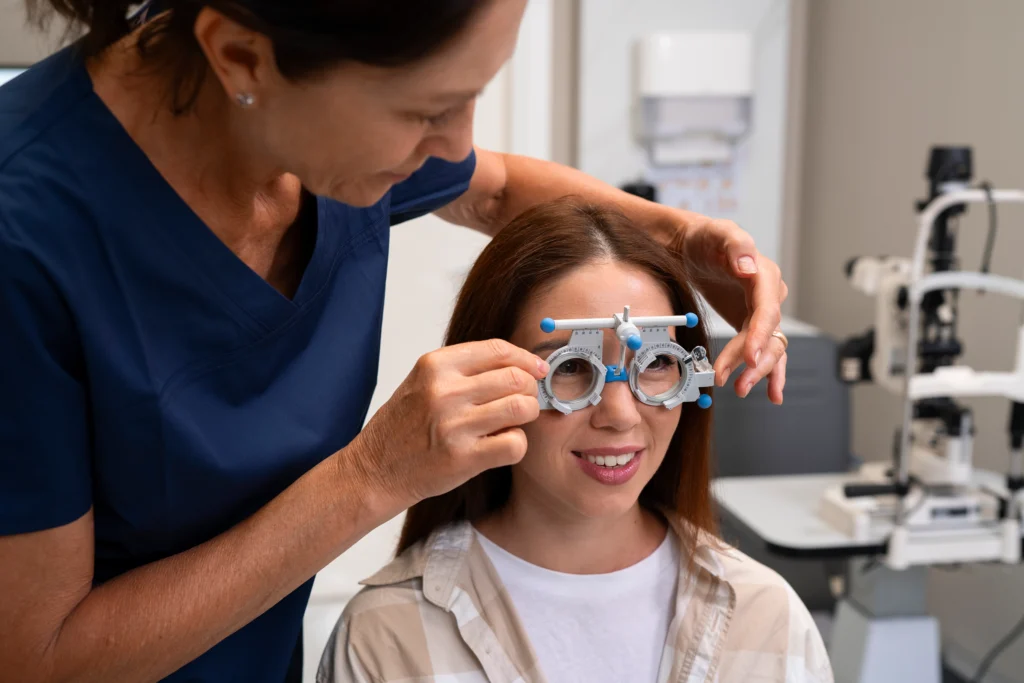
WHAT IS Diabetic Eye?
Understanding About Diabetic Eye
Diabetic eye care is crucial for managing and preventing complications associated with diabetes, such as diabetic retinopathy, cataracts, and glaucoma. High blood sugar levels can damage the blood vessels in the retina, leading to vision problems. Regular eye exams are essential for detecting early signs of diabetic eye disease before significant damage occurs.
Patients should aim to keep blood sugar levels well-controlled through diet, exercise, and medication. Monitoring blood pressure and cholesterol levels also plays a vital role in preventing eye complications. It’s important to recognize symptoms like blurred vision, floaters, or difficulty seeing at night, as these may indicate worsening conditions.
Protective measures include wearing sunglasses to shield eyes from UV rays and managing overall health to reduce the risk of eye problems. Regular consultation with an eye care professional ensures timely intervention and helps maintain optimal eye health.
Symptoms of Diabetic Eye
- Blurred Vision
- Floaters
- Flashes of Light
- Difficulty Seeing at Night
- Dark or Empty Areas in Vision
- Eye Pain or Redness
- Sudden Vision Loss
Managing diabetic eye disease involves a combination of medical treatments and lifestyle changes to preserve vision and prevent further damage. Early intervention is key. Treatments include:
1.Laser Therapy: Laser photocoagulation can target and seal leaking blood vessels in the retina to reduce swelling and prevent vision loss.
2.Anti-VEGF Injections: Medications injected into the eye can help control abnormal blood vessel growth and reduce retinal swelling.
3.Corticosteroid Injections: These can help reduce inflammation and control swelling in the retina.
Maintaining good eye health is crucial for individuals with diabetes. Key precautions include regular eye exams to detect early signs of diabetic eye disease, such as retinopathy, cataracts, or glaucoma. Aim to have a comprehensive eye exam at least once a year or as recommended by your eye care professional.
Controlling blood sugar levels through a balanced diet, regular exercise, and prescribed medication helps prevent or slow the progression of eye problems. Managing blood pressure and cholesterol is also vital.
Avoid smoking, as it increases the risk of diabetic complications. Protect your eyes from UV rays by wearing sunglasses with UV protection. Monitor your vision for any changes, such as blurred vision or floaters, and seek medical advice promptly if symptoms arise. Following these precautions helps preserve vision and overall eye health.
Different Types of Diabetic Eye
Diabetic Retinopathy
A common complication of diabetes that affects the blood vessels in the retina. It can lead to vision loss if untreated and is characterized by changes in blood vessels, including leakage, bleeding, or the growth of new, abnormal vessels.
Diabetic Macular Edema (DME)
A condition where fluid accumulates in the macula, the central part of the retina responsible for sharp, detailed vision. This swelling can cause blurred or distorted central vision.
Diabetic Cataracts
Cataracts occur when the lens of the eye becomes cloudy. In diabetics, cataracts can develop at an earlier age and progress more rapidly, leading to blurred vision and increased sensitivity to glare.
Diabetic Glaucoma
Glaucoma is characterized by increased pressure in the eye that can damage the optic nerve. Diabetics are at higher risk for glaucoma, which can lead to vision loss if not managed effectively.
Proliferative Diabetic Retinopathy (PDR)
An advanced stage of diabetic retinopathy where new, abnormal blood vessels grow on the retina and vitreous gel inside the eye. These vessels can bleed, leading to severe vision loss and potentially blindness.
Retinal Detachment
A serious condition where the retina pulls away from its underlying tissue, often due to changes in the retina caused by diabetes, leading to sudden vision loss.
FAQs
What is diabetic retinopathy, and how is it treated?
Diabetic retinopathy is a condition where high blood sugar levels damage the blood vessels in the retina, leading to vision problems. Treatment often includes managing blood sugar levels, laser therapy to seal leaking blood vessels, and anti-VEGF injections to reduce fluid accumulation.
How often should people with diabetes have eye exams?
People with diabetes should have a comprehensive eye exam at least once a year. However, the frequency may vary based on individual risk factors and the presence of diabetic eye conditions.
Can diabetic eye conditions be prevented?
Diabetic eye conditions can be significantly reduced by maintaining well-controlled blood sugar levels, managing blood pressure and cholesterol, and avoiding smoking.
Our Services
Book An Appointment
Why Choose Eyecare Optical and Clinic ?
- Experienced Doctors
- Cutting-edge Technology
- 1000+ Trusted Patients
- 10+ Years Services
- 10,000+ Surgeries
- 100% Accurate Results
- Quick Recovery
- Your Vision Is Our Focus
- Treatments
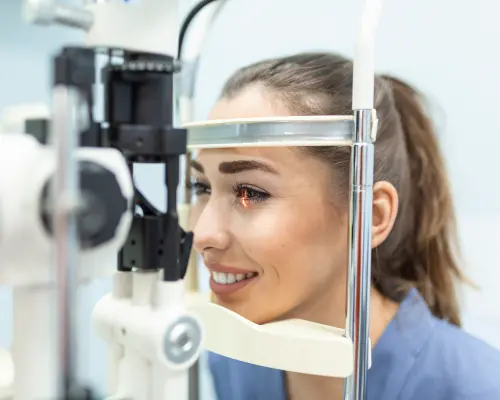
Customised LASIK
Personalized LASIK is a type of vision correction surgery that is more accurate and specific than normal LASIK since it is customized to the specific flaws in each patient's eye.
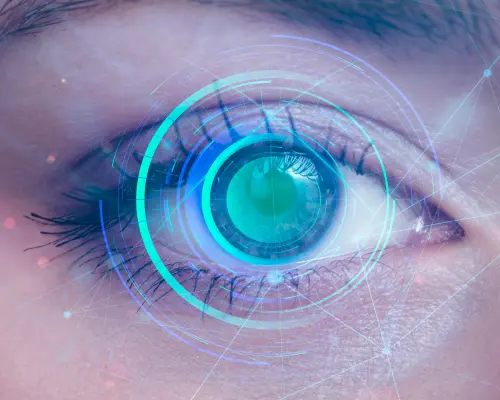
Retina Services
Retinal services include specialist medical care for the diagnosis, treatment, and management of disorders and diseases that impact the retina.
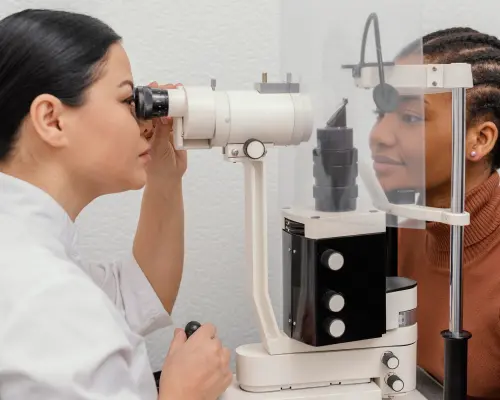
Corneal Services
The clear front surface of the eye, the cornea, is affected by a variety of diseases and ailments, which Corneal Services specializes in identifying, treating, and managing.
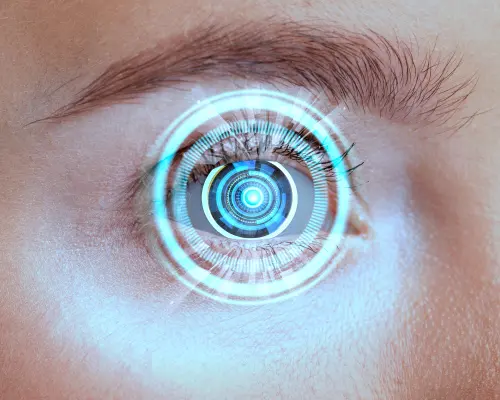
Anti-VEGF Agents
Anti-VEGF therapies are drugs that prevent aberrant blood vessel formation and leakage by blocking vascular endothelial growth factor (VEGF).
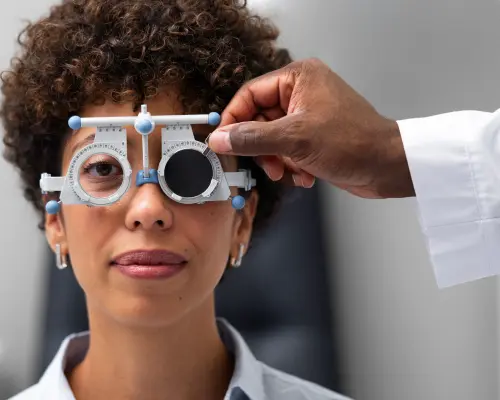
Epi-LASIK
A form of refractive surgery called epi-LASIK uses a laser to separate and reshape the corneal epithelium in order to treat visual issues like astigmatism, hyperopia, & myopia.
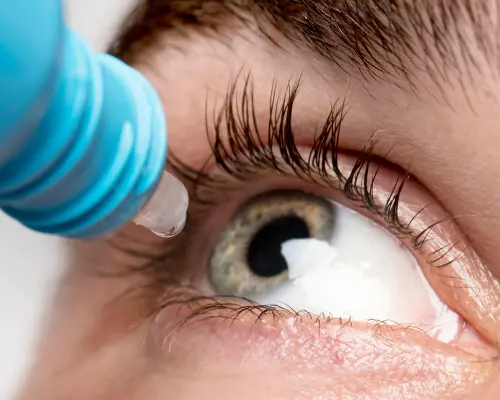
Dry Eye Treatment
To control symptoms and enhance tear production, dry eye treatment options include prescription drugs like cyclosporine, artificial tears, and lifestyle modifications.
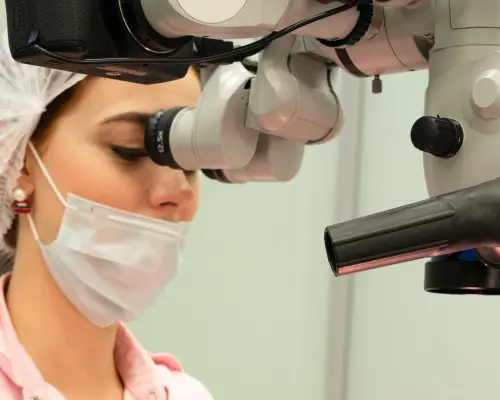
Contoura Vision
Contoura visual is a highly precise LASIK eye surgery treatment that corrects visual abnormalities using topography-guided technology.
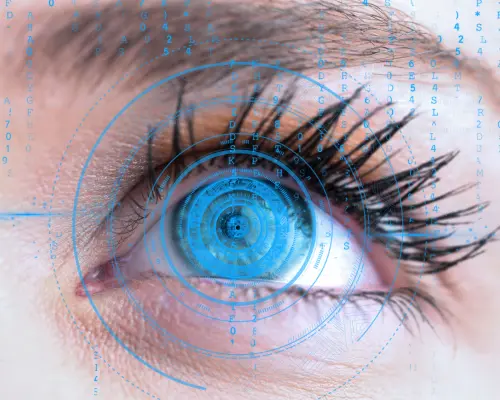
ICL
The term "ICL" refers to Implantable Collamer Lenses, a kind of corrective lens that is placed inside the eye to cure astigmatism, hyperopia, and myopia.
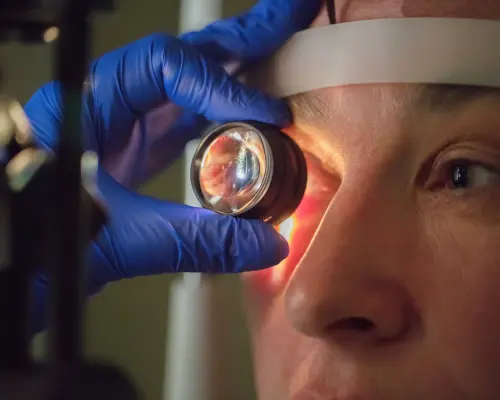
Cataract Surgery
The process of having a cataract surgically removed and a clean artificial lens placed in its place restores eyesight.